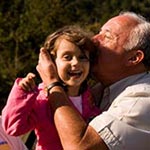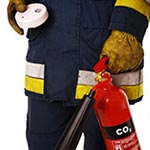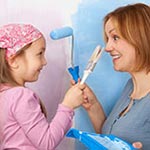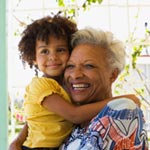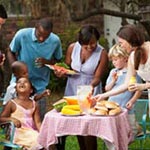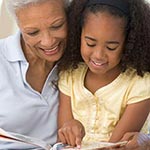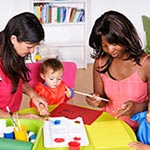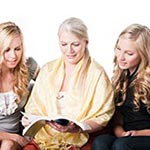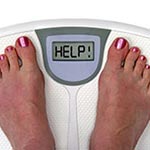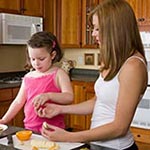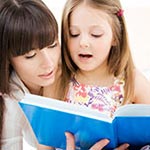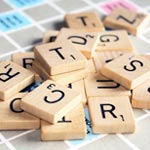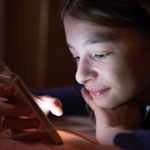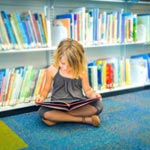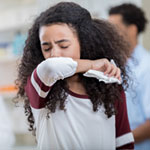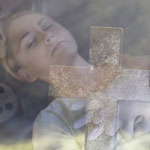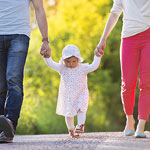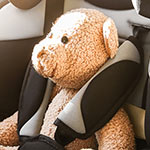Dangers Within Your Home

By Stacy Williams •
November 16, 2016
Every year, approximately 6,000 deaths happen as a result of home accidents. Additionally, over 76,000 children under the age of 14 are admitted for treatment due to an accident within the home and 40% of those children are under the age of 5. Most accidents occur within the home because there are often hidden dangers that many aren’t aware of.
Here are some of the top dangers at home that can cause accidents...
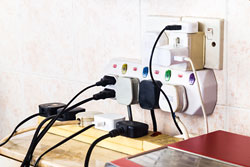
- Space heaters. Although space heaters can be economical, they are also responsible for causing more than 25,000 home fires every year. If using a space heater is a necessity for your family, try to use heaters that have been safety tested and UL approved. There are also space heaters available that have emergency tip-over and shut-off features, which can help prevent your home from becoming a statistic.
- Tripping. Believe it or not, tripping over toys, carpeting and electrical cords are the cause of many household accidents. Tripping accidents can cause falls on stairs and walkways, which can result in broken bones and concussions. The best way to prevent falls around the house is to teach children to put their toys away, make sure walkways are clear and always pay attention to where you are walking. You can also prevent tripping over carpet and cords by taping them down and securing them from walk areas.
- Large appliances. Appliances such as dryers and freezers can be very dangerous because they can seem like fun hiding places to small children. Although new freezers are now made with safety latches that allow them to be opened from the inside, many curious children can become trapped inside large appliances. Dryers can also be a fire hazard. The best way to prevent accidents caused by appliances within the home is to teach children the dangers of playing in appliances and never leave them unattended.
- Mold. Homes in wet climates and even humidifiers that are not kept clean can contain mold spores, and thus, be very dangerous and hazardous to your health. Always keep humidifiers clean and use distilled water for the best results. Also keep walls and floors dry to prevent mold from growing and causing air to be hazardous.
- Paint. Paint and paint thinner are common products used around the house, but they can be hazardous and very dangerous. They can pose a serious threat to children or pets because they are toxic and very flammable. These products should always contain warning labels advising you how to store and dispose of them properly. Read the labels carefully and keep them out of reach of children.
- Burns. Stoves and ovens are the cause of many emergency room visits due to burns. Burners on the stove can be touched by children and adults that do not realize they are hot. The handles of frying pans and pots can be knocked off the stove spilling hot contents. Additionally, potholders left on the stove or burning grease can cause fires. Always keep fire extinguishers close by and teach your children the importance of taking precautions to keep from getting burned. Keep handles of pots and pans turned inward when cooking on the stove. You can even research possible safety devices that can be used to make the stove and oven childproof if you have small children.
- Window Blinds. Window blinds and cords are the leading cause of choking and strangulation among children. Keep cribs and toddler beds away from window blinds and the cords attached to them. You can even replace blinds with cordless window coverings, or you can tie cords out of reach of children.
- Electrical Outlet Overload. Overloading electrical outlets can be dangerous. Electrical fires account for a great deal of home fires every year. Never plug more than two things into an outlet or add more plugs with extension cords. For multiple plugs, only use outlets designed to handle more than two. Major appliances should be plugged into their own wall outlet because they use more power. If your lights flicker or dim, your outlet plates feel warm, your circuit breakers trip often or you hear a buzzing sound from outlets, you may have them overloaded. It may be a good idea to consult an electrical professional to come up with a better solution for your needs.
You might also be interested in...
-
 6 Tips For Choosing Childcare
6 Tips For Choosing Childcare
-
 Babysitting your new grandchild requires learning
Babysitting your new grandchild requires learning
-
 Building Your Kids Self Esteem
Building Your Kids Self Esteem
-
 Dangers Within Your Home
Dangers Within Your Home
-
 Fire Prevention Measures Every Parent Should Be Taking
Fire Prevention Measures Every Parent Should Be Taking
-
 Five Money Saving DIY Projects for Moms
Five Money Saving DIY Projects for Moms
-
 Five Tips to Help Your Child Develop Good Study Habits
Five Tips to Help Your Child Develop Good Study Habits
-
 Grandparents Raising Grandchildren
Grandparents Raising Grandchildren
-
 Helping Your Kids Make Healthier Food Choices
Helping Your Kids Make Healthier Food Choices
-
 How Homeschooling Can Be A Great Choice For Your Family
How Homeschooling Can Be A Great Choice For Your Family
-
 How Important is Reading with your Grandchildren?
How Important is Reading with your Grandchildren?
-
 How Life Insurance Can Benefit Your Children And Grandchildren
How Life Insurance Can Benefit Your Children And Grandchildren
-
 How to Choose a Safe Daycare for Your Child
How to Choose a Safe Daycare for Your Child
-
 How to Handle Public Temper Tantrums
How to Handle Public Temper Tantrums
-
 How to Leave Tangible Memories for Your Children and Grandchildren
How to Leave Tangible Memories for Your Children and Grandchildren
-
 How to Lose Weight after Having a Baby
How to Lose Weight after Having a Baby
-
 Quick and Easy Breakfasts for Kids on School Mornings
Quick and Easy Breakfasts for Kids on School Mornings
-
 Time Saving Tips for Stay At Home Moms
Time Saving Tips for Stay At Home Moms
-
 Tips to Help Your Child Perform Better At School
Tips to Help Your Child Perform Better At School
-
 Top Ten Child Safety Issues
Top Ten Child Safety Issues
-
 What Kind Of Leader Will Your Child Become?
What Kind Of Leader Will Your Child Become?
-
 Top 10 Fun Games To Play With Grandparents
Top 10 Fun Games To Play With Grandparents
-
 Is The Fear Of Missing Out Causing Your Teen To Lose Sleep
Is The Fear Of Missing Out Causing Your Teen To Lose Sleep
-
 5 Creative Activities For Parents & Kids
5 Creative Activities For Parents & Kids
-
 Is Your Child Safe Going To School
Is Your Child Safe Going To School
-
 4 Kid-Friendly Ways To Stay Active
4 Kid-Friendly Ways To Stay Active
-
 Avoiding the Summer “Brain Drain”
Avoiding the Summer “Brain Drain”
-
 8 Digital Skills Every Child Should Know
8 Digital Skills Every Child Should Know
-
 Fun Fall Activities To Do With Kids
Fun Fall Activities To Do With Kids
-
 Top 6 School Year Illnesses
Top 6 School Year Illnesses
-
 How To Save On Your Monthly Cable Bill
How To Save On Your Monthly Cable Bill
-
 Buying Life Insurance for Children
Buying Life Insurance for Children
-
 What Are the Odds of Dying Young?
What Are the Odds of Dying Young?
-
 Pros and Cons of Purchasing Life Insurance for Your Grandchildren
Pros and Cons of Purchasing Life Insurance for Your Grandchildren
-
 Can Both Parents Have Life Insurance on a Child?
Can Both Parents Have Life Insurance on a Child?
-
 Car Seat Danger: 5 Ways to Keep Young Children Safe in the Car
Car Seat Danger: 5 Ways to Keep Young Children Safe in the Car

 Insurance products are available in New York from
Insurance products are available in New York from  Insurance products are available in your state from
Insurance products are available in your state from 






